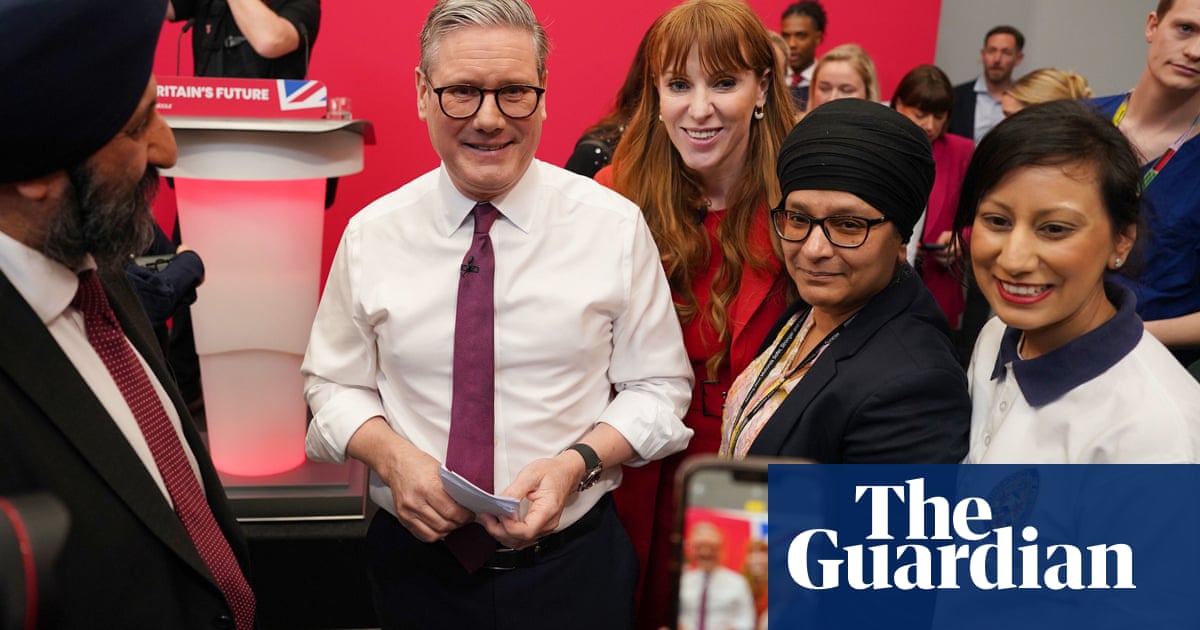The likely outcome of May’s regional elections was fully visible on Thursday in Dudley if a politician’s confidence is measured by how freely they willingly test themselves to immediate media scrutiny.
Rishi Sunak gave his Conservative launch speech last Friday with a strictly controlled and brief TV clip, but Keir Starmer answered journalists’ questions for about 40 minutes, covering everything from council spending to Angela Rayner’s tax affairs.
It was a competent and at times optimistic performance, somewhat in the way he offered complete- throated support for Rayner, his deputy, and his one- word answer of “yes” when asked whether did fully implement their workers’ rights agenda.
This is a chief growing into their position, which is unavoidable in some ways. But, of course, it does also experience easier when your party is polling about 20 points ahead of your principal critics.
Starmer made it clear that Labour would use the native and municipal elections as a rehearsal for the big event, even though this was not the plan start for the May public vote he had hoped for.
His gathering at a technology institute, which contained rousing, if eerily cries of “national renewal” and warnings that the upcoming fiscal and social path will be challenging, would have only wanted minor adjustments to be made.
Up for grabs on 2 May are a full of 10 mayoralties, as well as more than 2, 600 British committee chairs, and police and crime director content in England and Wales.
One of the bigger challenges facing Labour is a very general assumption that they will win the election, which is being met by Starmer’s team’s energetic opposition.
Hundreds of new Labour ministers are generally a given. The gubernatorial races, particularly in London, the West Midlands, and Tees Valley, may be more important to how views of political speed for Starmer are perceived.
In the past, barring one of the worst social mishaps in UK polling past, Sadiq Khan will get a second word against the Conservative candidate, Susan Hall.
It is no accident that Starmer and Rayner traveled to Street’s piece for their release occasion, where they were joined by the Labour member Richard Parker, who has been running for the West Midlands and Tees Valley mayoral elections, which are held by two Conservatives, Andy Street and Ben Houchen, both.
Local elections are notoriously difficult to predict, and the range of within-posture outcomes range from Street and Houchen being easily returned, with relief for Sunak, to the idea that the Conservatives would lose all ten mayoral races.
Although Starmer’s team has unflinchingly dismissed the latter scenario, it is unlikely that it will occur, and there will soon be renewed rumors about a leadership challenge or even a summer election to make things worse.
Long or short, the election buildup has its obvious perils for Labour, which remains somewhat bruised by its convoluted ditching of the pledge to spend £28bn a year on green investment, in February.
But even here, confidence is returning, with Starmer joining Ed Miliband, the shadow secretary for energy security and net zero, on a visit earlier this week to Hollyhead in north Wales, where the Labour leader for floating offshore windfarms as a “gamechanger” for clean energy.
The canvassers will soon be knocking on doors and delivering leaflets as the stage is set. This is not the main event, but that is imminent, and both sides know it all too well.

